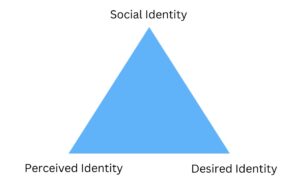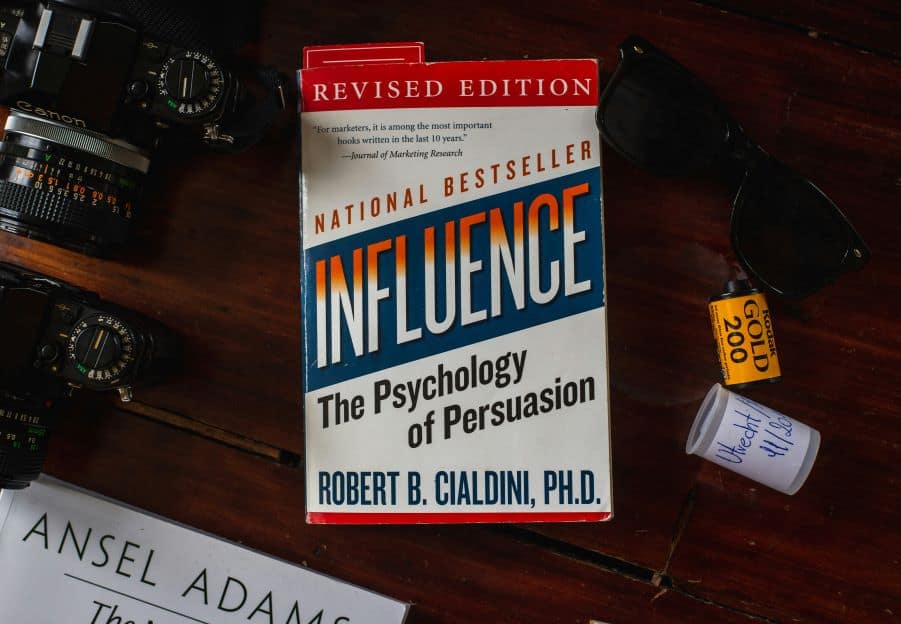Hi there,
What’s the Story?
This week I’m being interviewed on my Changing Minds podcast for the first time by my good friend Mike Goldman. To check this interview out, click here: video.owenfitzpatrick.com.
Also here is a cool article on identity and behavioral change. Hope you’re having a fun November!
__________________
Why Change is a Matter of Identity
Estimated reading time: 5 minutes 09 seconds
15 years ago, in a hotel room in Dublin City, I was teaching a workshop to coaches on how to change habits. An experienced life coach, Maria, raised her hand.
“I want to stop smoking,” she said. “I know what to do. But I have tried everything and made progress then revert. I guess I am just a smoker.”
I asked her, “How many cigarettes do you smoke per day?”
“20 more or less.”
“And how long does it take you to smoke one?”
She paused. “3 or 4 minutes”.
“So 20 cigarettes at 4 minutes per cigarette is 80 minutes?”
She nodded.
“If you spend 80 minutes doing one thing and 22 hours and 40 minutes per day doing something else, which would you use to describe yourself as?”
A slight smile crossed her lips. I continued.
“You’re not a smoker. You’re a non-smoker who smokes for 80 minutes per day.”
Her grin turned into a smile. “I never thought about it like that before.”
The ‘Secret’ to Long-Term Change
So many people focus on motivation as being the key ingredient to lasting change. Motivational speakers are notorious for promising you the secret to changing your life. ‘Focus on what you want and why you want it.’
But this isn’t enough. Motivation wanes.
Others suggest that ‘discipline’ is the key. Discipline is the will to act in an organized way regardless of how you feel. It keeps you taking action even when you aren’t motivated. We hear phrases like: “Discipline equals freedom”.
But discipline isn’t enough. Discipline exhausts us.
Then there are habits. Habits are practices that have become so automatic that you don’t even need effort for them. Like brushing your teeth, they simply become a part of your everyday life. We’re familiar with the expression: “Your life is the sum of your habits”.
But habits aren’t enough. They stop existing when you stop practicing them.
Fundamentally, what makes the biggest difference in determining whether or not we change comes down to our identity. It’s not just how you feel about the habit. It’s how you think about yourself.
Your Identity
You are a collection of stories that you tell yourself. This is your ‘identity’. Three particular stories have a huge impact on you.
The stories you tell yourself about the community you belong to (your social identity), the actions you take (your perceived identity), and what you want to believe about yourself (your desired identity).
These form a remarkable triad that is possibly the biggest reason why long-term change works.

Social Identity: The groups you belong to
How do you know if someone is into CrossFit? They’ll tell you.
Social identity theory is the idea that the group that you are a part of influences the way you perceive yourself. Your identity is formed socially.
When you get married to somebody, you are committing to a joint group identity with that person. ‘Weight Watchers’ and ‘Alcoholics Anonymous’ work because people come together, identify with others, and make commitments as a result.
Researchers found that simply being part of a group that promoted healthy behaviors made individuals significantly more likely to engage in those behaviors. We align our actions with the groups we identify with.
Perceived Identity: How you see yourself
As well as looking at the groups you are a part of to understand who you are, you also look at the actions you take. You tend to describe yourself as a ‘runner’ not just because you are in a running club but because you run. If you’re a ‘smoker’, it’s because you smoke. Whatever you do consistently becomes evidence to label yourself.
Self-perception theory, proposed by Daryl Bem, suggests that you observe your behavior to understand who you are.
Marketing experts understand this and therefore target ‘avatars’. If you see yourself as a certain type of person, you will buy things that person buys. You will do things that person does. You have a real need to act aligned with who you think you are.
This is because of a tension that you experience in your mind when you hold two or more conflicting beliefs, known as cognitive dissonance. When your identity is out of whack with your behavior you experience a form of tension that you feel a need to resolve.
If you act like that person, you’ll also start to see yourself as this type of person. It’s a cycle. If you want to become a ‘healthy eater’, then catch yourself eating healthy regularly or see how eating healthy aligns with some of your other behaviors.
Desired Identity: How you want to be seen
In the book Magic Words, Jonah Berger shares an experiment where schoolchildren were asked to help clean a classroom. The researchers found a 30% increase in the children helping when asked to be ‘a helper’ vs. when they were asked ‘to help’.
We crave the opportunity to be something better than we are.
I’m addicted to productivity systems. I’ve invested hours in finding the perfect project management system that would solve all of my problems. But I’m always left disappointed. (There is an argument to be made that I would be far more productive if I actually used those hours to get things done!)
You buy things that will help you become who you want to be.
As James Clear, in his popular book Atomic Habits writes:
“Every action you take is a vote for the type of person you wish to become”.
Why You Do What You Do
You act consistently to align with your community.
You act consistently to align with who you think you are.
You act consistently to align with who you want to become.
When you don’t, it’s uncomfortable.
Your identity is a collection of stories that become the beliefs you buy into.
To change your behavior, you need to change the stories that you sell to yourself.
How to Do This
1) Identify the kind of people who are already engaging in the behavior or habit that you want to engage in. Surround yourself with them offline and online.
2) Understand how you perceive yourself currently. Whatever habit you want to create, look for examples in your life of how this habit would fit perfectly for you. People like you who take care of their health, for instance, typically sleep early and wake early.
3) Know what type of person you want to become. What kind of actions would you need to take consistently to become this type of person?
The next time I saw Maria was at a conference years later. She looked younger than I remembered. She hadn’t touched a cigarette since that day.
When we met, she already had the tools to motivate herself and handle the cravings. It wasn’t my magical phrase that changed things for her. It was helping her to realize she was already the kind of person who could stop smoking.
Sometimes, that’s all we need to know.
____________________
The Brain Prompt
Decide on who you want to become.
What actions would that person take, daily?
How can you start to do that?
What people would that person surround themselves with?
How can you surround yourself with those kinds of people?
Subscribe to the Inner Propaganda newsletter for weekly insights on language, influence, and the art of persuasion: owenfitzpatrick.com/newsletter.
Cheers,
Owen.





